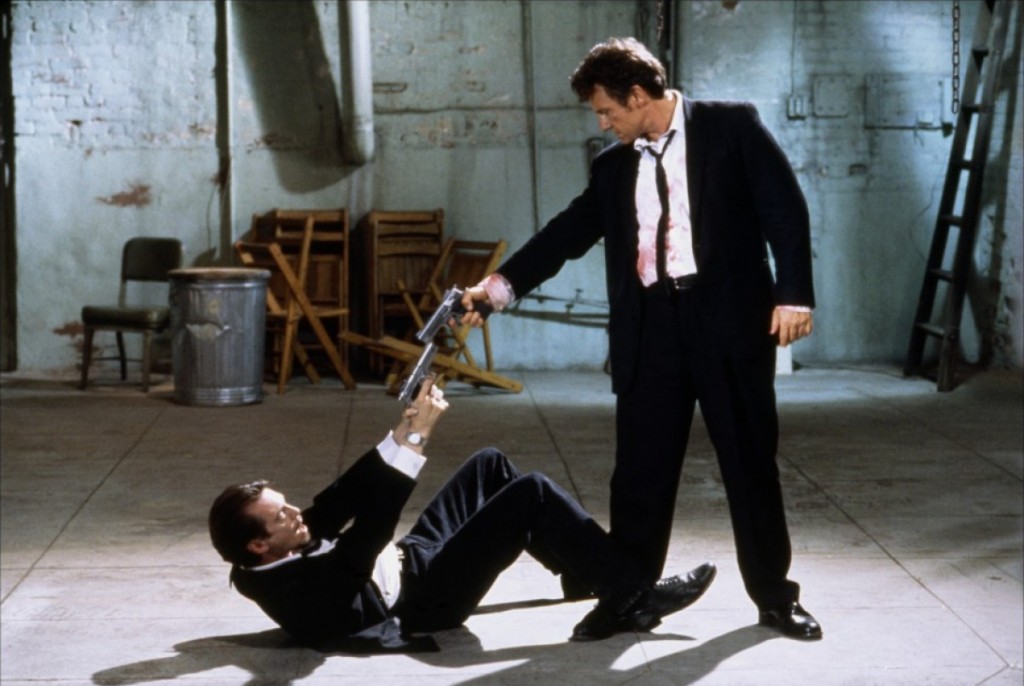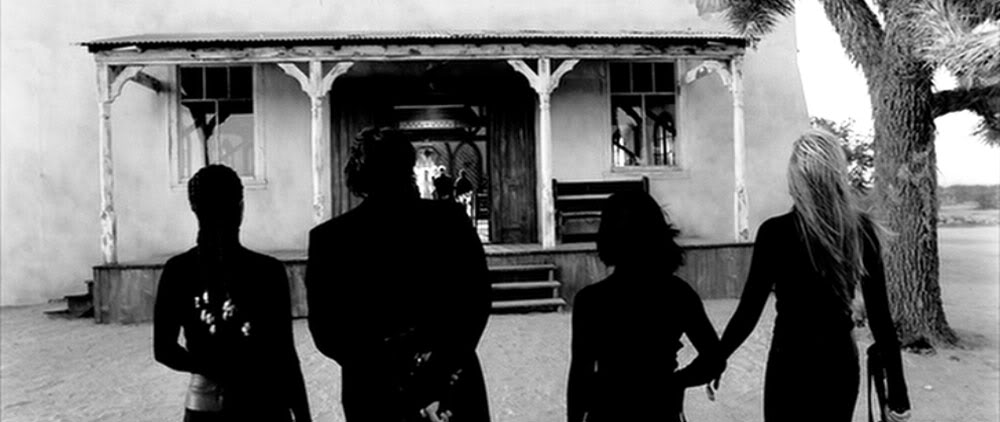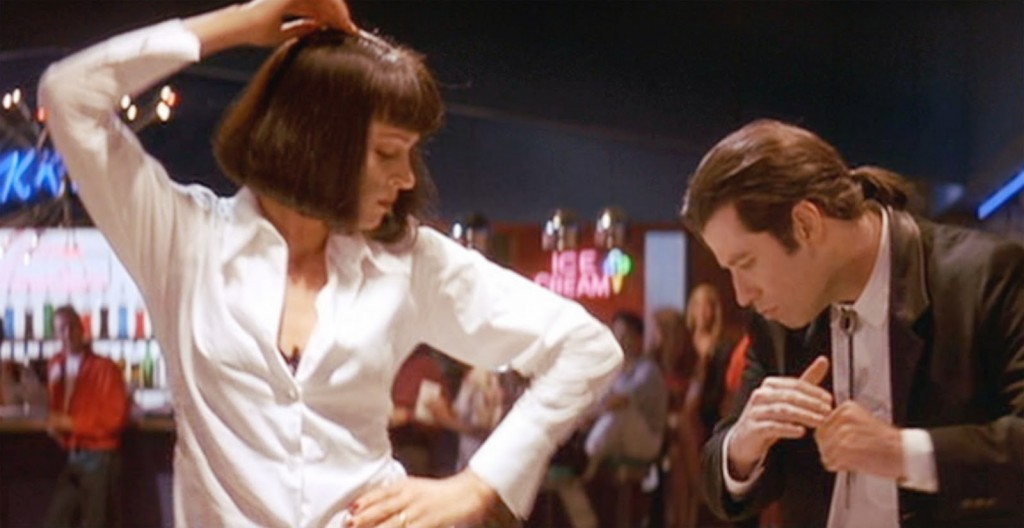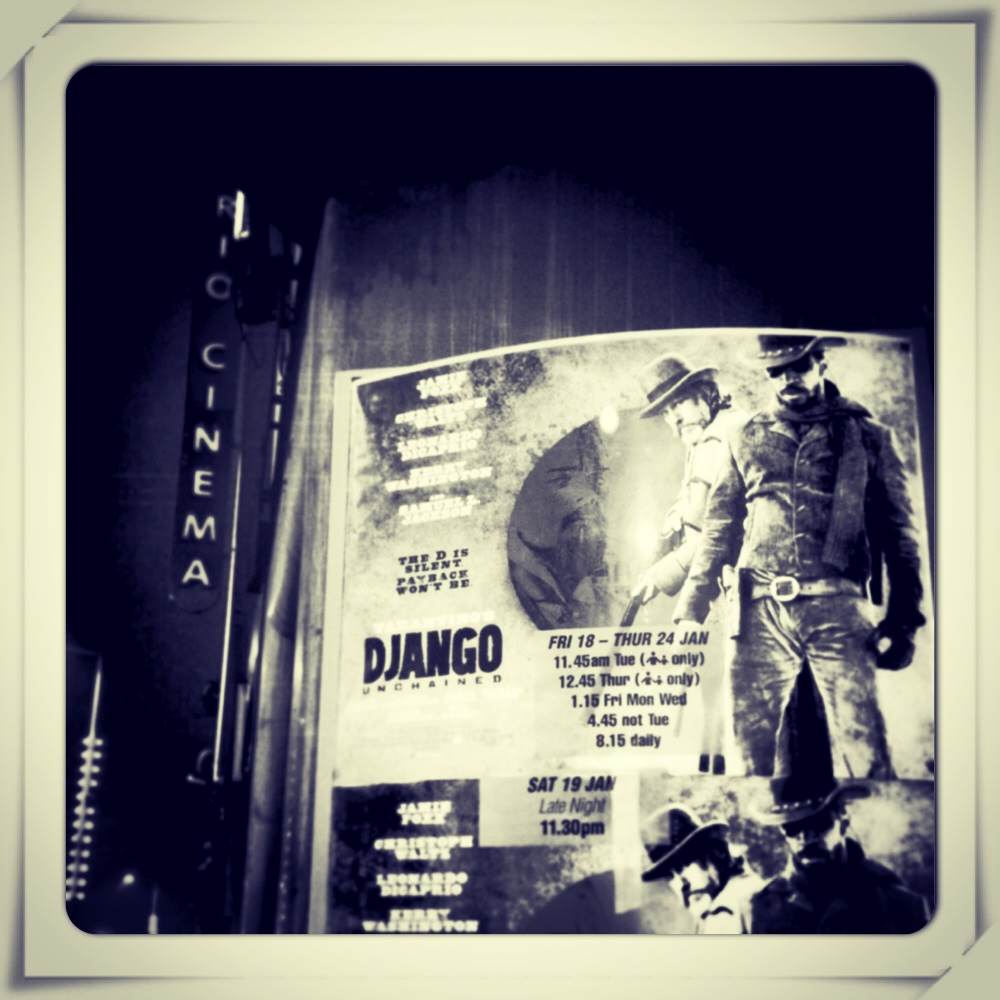I’ll always remember when we first met. The setting was the shabby living room of my friend’s house, cat hairs rolling like tumbleweed over carpeted floors, the stale scent of cigarettes clinging to soft furnishings due to the smoke curling through the air from the continual glow of her mother’s Silk Cut. 2 guys face each other from the angle of their gun barrels; Mr Pink on the floor facing up to Mr White who towers over him. The moment is tense and unpredictable, interrupted only by the appearance of Mr Blonde. This was Reservoir Dogs. This was my initiation into the world of Quentin Tarantino.
I am certainly one of many followers and there are possibly equally as many opposed to the cinematic fruits of his genial yet also unhinged mind. I cannot speak for them though. I can only state that from the carnage of Reservoir Dogs, the unforgiving love affair of True Romance closely followed (remembering it was not directed but written by dear Quentin), Pulp Fiction was bled to transfusion point from my repeated views, followed by the incredible sass of Jackie Brown, the emotive vengeance of Kill Bill Volumes 1 & 2, the violent horror/homage of Death proof as part 1 of the Grindhouse duet with Robert Rodriguez to the much anticipated war-based Inglourious Basterds. Every screening has held me captivated and induced the incessant need for me to emulate the heroine or ‘heroines’ of that particular movie. That is what Tarantino manages to do every time; he unifies genuine film aficionados with beautiful yet deadly specimens, utilising uncensored and engrossing violence with endless profanities and makes it all COOL.
And in light of his past offerings, the dawn of his newest film, Django Unchained is upon us. Before I go on to the finale of my post though, I want to address why his work holds such allure; an approach to film-making that deserves its own genre, based on the cult following it has created. Horror? Too niche. Drama? Too emotional. Controversial? An overused statement. All I know is that with every release I not only look forward to the inaugural viewing but am equally impatient for the film soundtrack. I think this is possibly where my love for Tarantino lies. The music he uses to pattern his movie works in such close unison that it is almost impossible to detach a song from a scene. How often can you honestly say that you have heard ‘You Never Can Tell’ by Chuck Berry without splicing 2 fingers over each eye whilst shimmying with your nearest companion? This is the result of his influence and even if you do not consider yourself an avid fan, you will somehow have been exposed and therefore influenced; whether through the music, a friends re-enactment of a scene to the general furore of his use of the word ‘fuck’ or ‘moth-er-fuck-er’ in the script. His characters are strong and with personalities that you both love and loathe in equal measure. I both sympathised and abhorred Bill’s motives (Kill Bill). I also feared yet laughed out loud with Jules Winnfield and Vincent Vega (Pulp Fiction). And with the majority of his female leads I learnt lessons of stoicism, further ways to denigrate others and a sense of empowerment. For someone so passionate about film already, this was a way of writing and acting that was so liberated that I was an easy target in absorbing his works. How do you define the ‘cool’ that strides into the cinema theatre with the opening credits of each of his films though? That is a subject matter for a separate post, although I personally consider something ‘cool’ that is seemingly against the grain of sorts and certainly not ‘mainstream’. You could make an assumption that Quentin’s works are becoming somewhat mainstream, what with the high-calibre names that feature in his work (Uma Thurman, Jamie Foxx, John Travolta, Brad Pitt) however these are not films to sit around cooing over and commenting on how ‘cute’ an outfit is or how ‘awesome’ an explosion was. There is a darker twist which enters into his work; the wince-worthy rape of Marcellus Wallace (Pulp Fiction), the cruel interrogation by Colonel Hans Landa (Inglourious Basterds), the torturous existence of the Bride (Kill Bill). Quentin brings into the open the utter depths of the human psyche that we are too ashamed (and sometime too polite) to admit to; our depravities, our politically incorrect humour, our blasphemous tongues and our selfish minds. He utilises all the chemicals our parents discouraged us to use and shares them amongst characters plentifully; drugs, cigarettes, alcohol and sexual deviancies are accepted in his company (a reminder that I talk of his screen presence. I cannot comment on behind-the-scenes activities).
And of course, how could one scribe about Tarantino without referencing the red fluid splashed about profusely that induces predictable outrage, along with the suggestions of inciting violence? Well my friends, with great ease must one withhold the finger of indignation on this particular subject. As a species we have well-documented examples from history of our need to see blood spilled, from acts of war to competitive sport. It unbridles our contained and composed daily lives; our monotonous existence and toil is momentarily broken through the experience of watching our repressed internal savagery acted out. We scoff at modern day examples of violence, murder and crimes of war. However, the need to justify such behaviour is futile; human beings are inherently barbaric. In ‘civilised’ society, we blush at exposed human flesh and avert our eyes to graphic acts of violence however throughout all of this behaviour there is an ever-widening gap between the fingers that cover our eyes. And this is where Tarantino comes in. His work permits us to watch all aspects of human nature in all its abhorrent and compelling glory, so one must embrace it for what it is but remember to retain such acts in their mental location only (God forbid those who take his work literally; an uneducated folly). Combine all these elements with superb screen-writing that knocks out a script that includes fascinating in-depth debates to a slick costume effort, all offset by a definitive selection of music that reinvigorates classic jukebox playlists, stamping them firmly on the modern mind and you have the final piece.
Which now brings me to Django Unchained. I must admit, my overt excitement en route to the dusty theatre which had the honour of screening this film had to be restrained with immense internal strength. I had seen his last film over 3 years ago, timed perfectly with my own return from a Tarantino-Ville of sorts, begrudgingly parting ways with a fixed abode in Austin, Texas. This was a City that referenced film, particularly Quentin’s work, at every corner. Enter a bar or coffee shop (mainly to gain some relief from the inferno-like sun blistering the sidewalks) and a jukebox will be blaring out tunes from the majority of his soundtracks, as well as displaying key stills and imagery from any number of his films. Inglourious Basterds was a fine companion to coax me back to UK life and climes so I have waited anxiously and eagerly for the next one. I will not go into detail on the plot or outcomes within the movie, this is an experience that you must go through as an individual without influence from others. Formulate your own opinion please. However I can share that it was splendid and fully sated my obsession with this director’s work from beginning to magnificent end. All the formulas that are utilised by Tarantino were present; great adversity, unholy vengeance, chilling brutality and well-spoken witty banter fused with applause worthy acting. I was beside myself with pride, gratitude and awe when the credits rolled at the end. I will desist from gushing any further as I would not want to confuse my passion for his films as an unhinged mania, however I will hold both my hands up and admit that I am a Tarantinophile; a philia yet to enter the English language but apt nonetheless to describe this intense and powerful attraction to his work. And long may I remain uncured.
(971)




